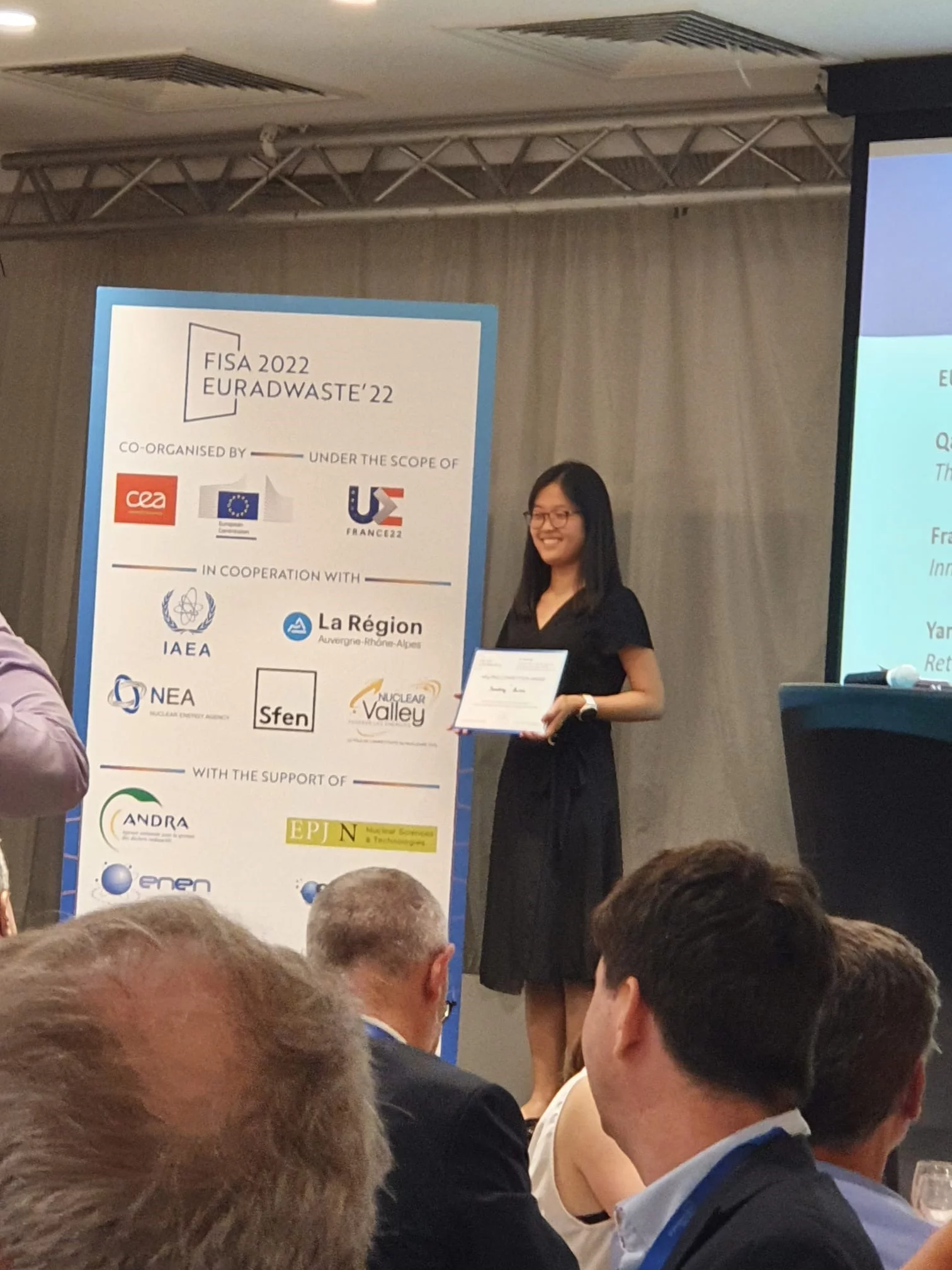Yanting Qian has received the MSc/PhD competition award in the FISA2022-EURADWASTE'22 conference. She works on the retention of redox-sensitive Tc on Fe-bearing clay minerals. Clay minerals are the main component of the engineered barriers and the argillaceous host rocks considered in several deep geological repository concepts. Due to their natural content of structural Fe and adsorbed surface Fe, clay minerals can potentially slow down the migration of radioactive redox-sensitive element 99Tc by reducing TcO4- to lower and less soluble TcO2∙nH2O-like species. A few studies have shown that Fe-bearing minerals are able to catalyse this reduction/precipitation process, but the exact nature of the (surface) precipitates, the geochemical formation conditions as well as the mechanism of the redox reaction are not fully understood. This study focuses on the Tc sorption and electron transfer behind the redox reaction. By combining Tc K-edge extended X-ray absorption fine structure (EXAFS) spectroscopy, mediated oxidation and reduction experiments (MEO/MER), Mössbauer spectrometry, and (high-resolution) transmission electron microscopy, the contributions of the different FeII/FeIII ratios to the overall Tc retention process and to the surface products speciation can be identified. The results of this study are expected to improve the understanding of the Tc retention on FeII/FeIII bearing clay minerals, and thus contribute to a more reliable prediction of the Tc retention in radioactive waste repositories.


